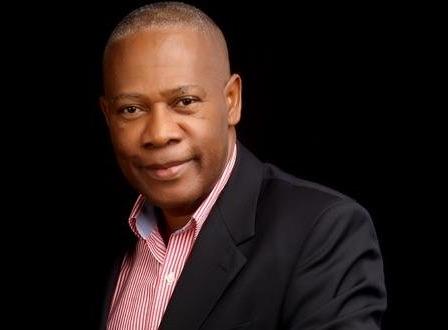
It has been eight months since Buhari won the election on March 28th, 2015 and Nigerians are anxious for the future. In these months, I tried hard to restrain myself from making any comments about the administration as I believed that they deserved time to get things going. Now, I am impatient as it would appear that this administration, constrained by campaign promises is afraid to confront the reality of what we face today. Can they tell us the truth? The truth is that we cannot continue to maintain the subsidy regime of petroleum products. At the heart of the subsidy is the Petroleum Equalization Fund Management Board Act of 1975 which states that Petroleum products must sell for the same price everywhere across the country. Without this law, there would be no discussion of subsidy. It is my contention that this law has outlived its usefulness if it was ever useful at all.

Essentially, all that the law succeeded in doing was to create a class of very, very rich people in this country who fed off of a law that was inherently defective because it was the child of ‘centralization thinking.’ Whilst I am a firm supporter of Federal Character in our national life because of the diversity of our country, I also believe that price control in the guise of Federal Character is doing damage to our ability to build infrastructure. It is 2015 and we need to think differently. It is time to set the Oil and Gas industry free. A paradigm shift in thinking is needed right now at the highest policy level. We must start to think of Petroleum the same way we think of tomatoes-----just another commodity. If the Federal government is not running the Tomato business by having a Tomato equalization law, I posit that they have no business running the Oil business either.
Any housewife will tell you how in some seasons, a basket of tomatoes could be as cheap as NGN 2000 whilst in other seasons, it could be as high as NGN 12000. These are the realities of a market driven economy.
Oil, like anything else cannot be granted immunity from market forces to the detriment of everything else and to the advantage of the few rich who continue to feed fat on this deficient law. It is common knowledge that petrol has not sold at the government controlled price in Borno or any border state for 40 years since this law was passed. The only set of people who have benefitted from this law are the Oil companies, the Oil tanker drivers who specialize in diverting product and get a slap on the wrist, and the Petrol station owners in these border states. As loyal as I believe I am as a citizen of the Federal Republic of Nigeria, if I owned a petrol station in a border state and I had a father Christmas who was generous enough to be sending me petroleum product free of transportation costs, my loyalty would be tested when the product is selling for four times the price at which I am getting it just across the border. If I restrain myself from this perfidy against my nation, how can I restrain the fellow down the road from bringing 300 jerry cans to fill up in my station to sell across the border for huge profit?
Sorry, I forgot! We do have the Customs officers whose duty it is to stop the illegal exportation of the product. The Customs officer has to be a Saint not to want to be part of this government largesse and in his mind, this is not corruption. This is business. In one day, he makes his salary for a year just by co-operating with the ‘smugglers.’ We ask too much of our citizens when we hand them the incentive to do the wrong thing.
It is also a known fact that Lagos constitutes at least 60% of the Nigerian economy. It would be safe to assume therefore that 60% of the cars and generator users in Nigeria are also in Lagos. If these facts hold true, then it must also be true that 60% of subsidy on petroleum products is subsidizing Lagos. Due to the fact that Labor Unions are focused on Oil in a way that they are not focused on Tomatoes, attempts to increase petroleum prices have always met with stiff resistance. It is my position that no serious attempt has been made by leadership in this country to explain why the situation is what it is because everyone has been feeding off of this bad law for forty years and so they pay lip service to it. The Federal government has no business running a business, has no business setting prices and therefore has no business increasing prices. Period. Does this government have the courage to do the right thing? Can they send someone who can talk to go round the country and talk? We cannot build schools, we cannot build roads, we cannot build hospitals, we cannot build modern airports, we cannot provide welfare services for the poor and aged in our population, we cannot feed our hungry and we cannot get 11 million children who are currently out of school to go to school because we have no schools for them for as long as we are bleeding money everyday just to preserve a few rich people.
To put things in perspective, Oil marketers came out with a press statement last week that they are being owed NGN470 billion for Oil subsidy. At today’s prices, this amount can build 2000 new secondary schools or 470 brand new state of the art hospitals and if you wanted to build roads, it can build five brand new roads, the length of Lagos—Ibadan Expressway or if you wanted to build an airport, you could build 20 new airports the size and standard of Terminal 5 at Heathrow. If you wanted to build a Power plant, you could generate 2,000MW of electricity or else, if you wanted to make Nigeria self sufficient in food production, you could sensibly target it to farmers across the country to help them cultivate more land for rice and wheat and save the country $11 billion in importation of these two items forever and another $4 billion used in importing sugar every year.
When we think like this, then, we can directly affect the standard of living of the people at every level and begin the serious fight against corruption by eliminating rent seeking from bad policies. The penchant for stealing as a new national culture would begin to disappear gradually when the man or woman at the desk sees no need to steal money to send their child to a Kindergarten school that is as expensive as a University. These are the real issues at the heart of our national culture of corruption and until bad laws are expunged from our books, there is no government in this country that will succeed in building the kind of infrastructure that we need to compete in this century where our mates have already left us behind.